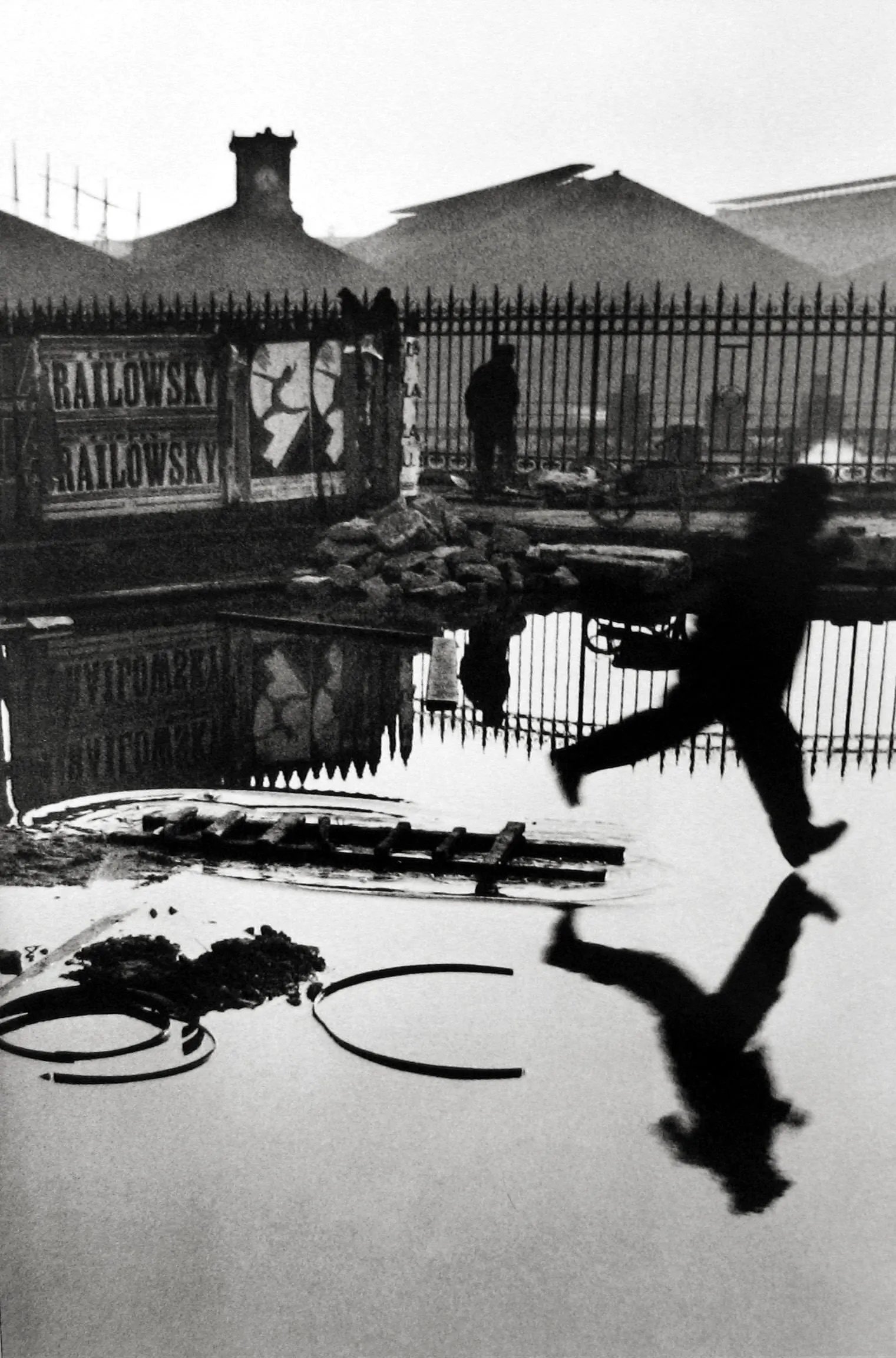
Finding Your Why In The Wilderness
When life falls apart, it’s easy to feel lost. Learn how values and purpose can help you navigate uncertainty, loss, and deep transformation.

AREN’T YOU GOING TO TELL ME WHAT TO DO?
Many people think coaching will give them answers. What they discover is something deeper: the myth of arrival, the reality of burnout, and the need to build inner resourcefulness. Here’s how I came to terms with that—and how you can, too.

The Turn Within: Why Midlife Feels Like a Crisis (But Is Really a Call to Self)
Midlife often feels like falling apart — but it’s actually a call to turn inward. Based on James Hollis’ The Middle Passage, this piece explores why the path to meaning begins where certainty ends.

43 Life Lessons from 43 Years
Turning 43 made me reflect on what I’ve learned so far. Here are 43 life lessons—from loving better and fearing less, to finding purpose in motion.

My Physiotherapist Knows What’s Up
We like to think that big changes happen in dramatic moments, but real transformation happens in the smallest acts of practice—the ones we resist the most. Whether it’s stretching before a run, having a tough conversation, or committing to a new habit, the things we avoid are often the keys to our growth. In this article, I explore why we resist these essential practices and how embracing them can lead to long-term success.

Is It Time to Stop Separating Work and Life?
We talk about work-life balance like it’s the ultimate goal—keep work over here, life over there, and all will be well. But what if that’s the wrong approach entirely? Severance, the Apple TV+ series about surgically splitting work and personal identities, forces us to ask an unsettling question: Are we actually meant to keep these parts of ourselves separate—or is true career fulfillment about integration?

When Life As You Knew It Stops Making Sense
"Is this all there is?" At some point, the life we built stops feeling like our own. In Part 2 of my reflections on The Middle Passage by James Hollis, I dive into why this happens, how to recognize the signs, and what it means to outgrow an identity you once relied on.

The Middle Passage & Finding Your True Self: A Journey Through Career & Identity Shifts
The Middle Passage by James Hollis is a profound exploration of midlife and identity shifts. Hollis describes it as 'a summons from within to move from the provisional life to true adulthood—from the false self to authenticity.' This transition is unsettling, sometimes painful, but ultimately a path toward a truer self. If you’ve ever felt restless in your career or life, this book might just reveal why.

Burnout: The Mojo Killer
Burnout isn’t failure - it’s a recalibration. It’s a chance to examine your systems - personal, professional, and societal—and realign with what truly matters.

Retirement: The Beginning of Something Bigger?
Retirement isn’t just an ending - it’s also a beginning. Sure, it marks the close of a career, but it opens doors to possibilities. By embracing intentionality and leaning into frameworks like RECIPE, retirees can transform this phase into a vibrant period of growth, fulfillment, and reinvention.

What If You're Stuck Because You Stopped Exploring?
Curiosity shifts our focus from rigid problem-solving and habitual thought patterns to an open-minded exploration of possibilities. For example, Steve Jobs famously spoke about his fascination with calligraphy during a college course. Though unrelated to his initial career goals, this curiosity profoundly influenced the typography and design of Apple’s products, showcasing how exploring unrelated interests can lead to groundbreaking innovations.

Facing Forward, Looking Back
New Year’s resolutions often fail because they’re too big and rooted in societal ‘shoulds.’ Instead, reflect on what worked last year, ditch the expectations that don’t excite you, and take one small, meaningful step toward what truly matters.

Decision Making as Art, Not Science
Making decisions is tough, especially when the stakes are high—like career transitions or major life changes. Understanding your decision-making style can add clarity and confidence, whether you're rational, intuitive, or rely on your gut. In this article, explore 3 lessons to navigate tough decisions, create momentum, and align your choices with your values.

You’re Not Done Yet (and That’s a Good Thing)
Feeling stuck? Nietzsche’s idea of life as a bridge reminds us: you’re not a finished product, and that’s okay. Every wobble is just the next step forward.

Letting Purpose Lead
Ambition thrives on external achievements, while purpose is rooted in deeper meaning and fulfillment. When ambition overpowers purpose, we risk chasing hollow goals. Learn how to differentiate the two, align them, and make time for what truly matters.

You’re Asking Yourself the Wrong Question…
"Comfort might feel safe, but staying stuck is actually exhausting. The mental gymnastics it takes to convince ourselves we’re incapable of change, to silence the nagging ‘What if you could?’ voice, is draining. It’s like running on a treadmill while insisting you’re too tired to move forward.
So, what can we do about it? First, recognize that the inner critic—the voice saying ‘That’s not realistic’—isn’t an all-knowing oracle. It’s just fear talking. Fear isn’t the boss of you, and it doesn’t have to control your decisions.
Instead, ask yourself, ‘What’s the smallest step I could take?’ Then take that step. Not because it’s guaranteed to lead somewhere amazing, but because movement is liberating in itself."

The Decisive Moment
Productivity just added more to my to-do list, paradoxically pushing me further from what I truly cared about. This reminds me of Oliver Burkeman. I first encountered his work years ago through The Antidote, a self-help book that, in a counterintuitive twist, argues we’ve been pursuing happiness all wrong. Burkeman’s latest book, Meditations for Mortals, dives right into the question many of us wrestle with: How can we get everything done? And in such a limited timeframe? His answer? We can’t. And that’s exactly the point. His philosophy, 'Imperfectionism,' is about embracing the impossibility of doing it all.

Doing the Scary Stuff: Facing Fear Leads to Personal and Career Growth
Carl Jung said it best: 'Where your fear is, there is your task.' Over the years, I’ve done plenty of things that scared me—some understandable (skydiving), others less so (taking on higher-paying clients). But with each scary task came growth, as I learned to navigate fear differently. Fear isn’t the enemy; it’s a signal that you’re on the right track.

Why Change Is Hard
Change isn’t just about shifting circumstances; it’s about navigating the emotional loss that comes with it. We often feel the pain before we fully process it, which is why transitions can be so challenging. But when we sit with the discomfort, we create space for real growth. As William Bridges says, true change requires mourning the end of what we’re moving on from. Only then can we start something new.

Why We Can’t Relax When Life is Good: Overcoming the Fear of the 'Other Shoe' Dropping
Even when things are going well—your career is stable, relationships are good, and you’re financially secure—there’s often a nagging sense that something is bound to go wrong. This fear is rooted in our survival instincts, causing us to anticipate threats even when they don’t exist, leading to chronic unease and professional burnout.

